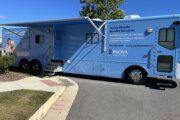Advanced Placement classes are difficult — there is no way around that fact. Even the most outstanding students sometimes falter in their AP courses, and understandably so. AP classes are designed to reflect the rigor of college curricula, and from the first day of the school year you are expected to work.
Maybe you considered dropping an AP class because of poor academic performance, but the deadline to drop the course has passed. Or maybe your AP class is going smoothly but you are seeking advice to help you stand out. In either case, following the three tips below can help set you on the road to AP success.
Divide Course Tasks Into Smaller, More Manageable Pieces
Time management is indispensable in AP classes. Without it, you can quickly fall behind, and once you do it requires serious dedication to get back on track.
[Read: How to Select the Right AP Classes for You.]
In light of the fast pace and intense workload of AP courses, students should plan to take thorough notes in class and to start working on assignments as soon as they are assigned. Starting your assignments as early as possible will allow you to revise your work and ask your instructor any questions that may arise. Thorough notes can also serve as a convenient review tool come end-of-year test time.
To tackle lengthy reading assignments, break them down into smaller, more manageable chunks. For instance, instead of reading 40 pages the day before an assignment is due, read 20 pages a day in the two days prior or 10 pages a day in the four days prior.
For complex research projects, create a reasonable timeline for yourself. You might consider imposing deadlines for each phase of a given project: preliminary research, topic selection, the gathering of sources, and so on.
Thinking of assignments in their entirety can leave you feeling overwhelmed, but tackling them step by step can give you gratification and empowerment.
Connect Your AP Studies to Enjoyable Pastimes
It goes without saying that you should study for every AP exam, not just the end-of-year test. But studying does not always have to be done at a table in your local library or bedroom. In fact, not everyone learns best under these conditions. Some people need absolute quiet to study, while others prefer to have some noise in the background.
[READ: 3 Common Mistakes to Avoid in an Online AP Course.]
The environment where you study partially determines the success of your study session. Aim to be comfortable and content with your surroundings — but not so much so that you are distracted from your goal.
One way to create a comfortable study environment is to incorporate a personal hobby. Are you an AP foreign language student who enjoys exercising? If so, upload songs, podcasts or e-books to your phone so that you can practice listening comprehension in that language as you work out.
If you are taking AP Art History, you can browse a museum’s online offerings on a Zoom call with peers and debate which movements could have inspired the pieces you see. AP Psychology students can watch movies and analyze the psychological phenomena they observe in the characters.
Discover Your Learning Style
Every student has at least one learning style that determines his or her optimal conditions for content retention. In the traditional model, there are three different learning styles: visual, auditory and kinesthetic. Kinesthetic learners, for instance, learn best when they move around and engage in hands-on work.
There’s no need to worry if you do not know your learning style , because you can easily figure it out.
[Read: What to Know About Self-Studying for AP Exams.]
The first step is to take a quick diagnostic test, which can act as your jumping-off point.
The next step is to begin experimenting with study techniques. First, you should practice with techniques that align with your learning style. If you are a visual learner, for instance, use and create study materials that have plenty of pictures, charts and graphs. Auditory learners can listen to recorded lectures and discuss course material with their peers.
If a study technique is not yielding favorable results for you, do not be afraid to try out a different one. The idea is to keep trying until you find the tool or method that suits your needs.
Excel in your AP courses this fall by prioritizing tasks, catering to your learning style and diversifying your study routine with personal interests.
More from U.S. News
What to Do If Your High School Doesn’t Offer AP Courses
3 Things to Know About AP Scores
How to Tell If an AP Course Isn’t the Right Choice
3 Ways to Succeed in Your AP Class originally appeared on usnews.com







